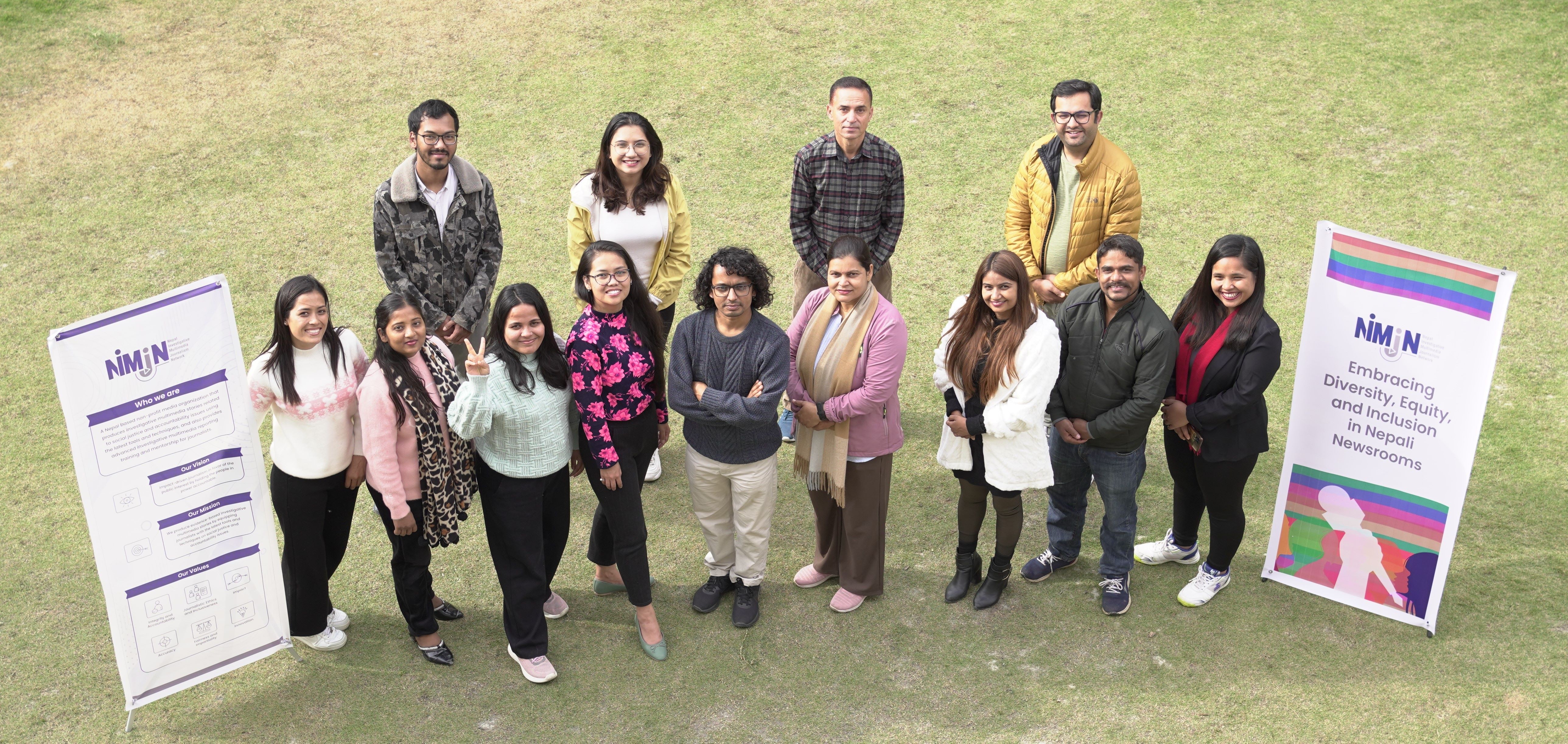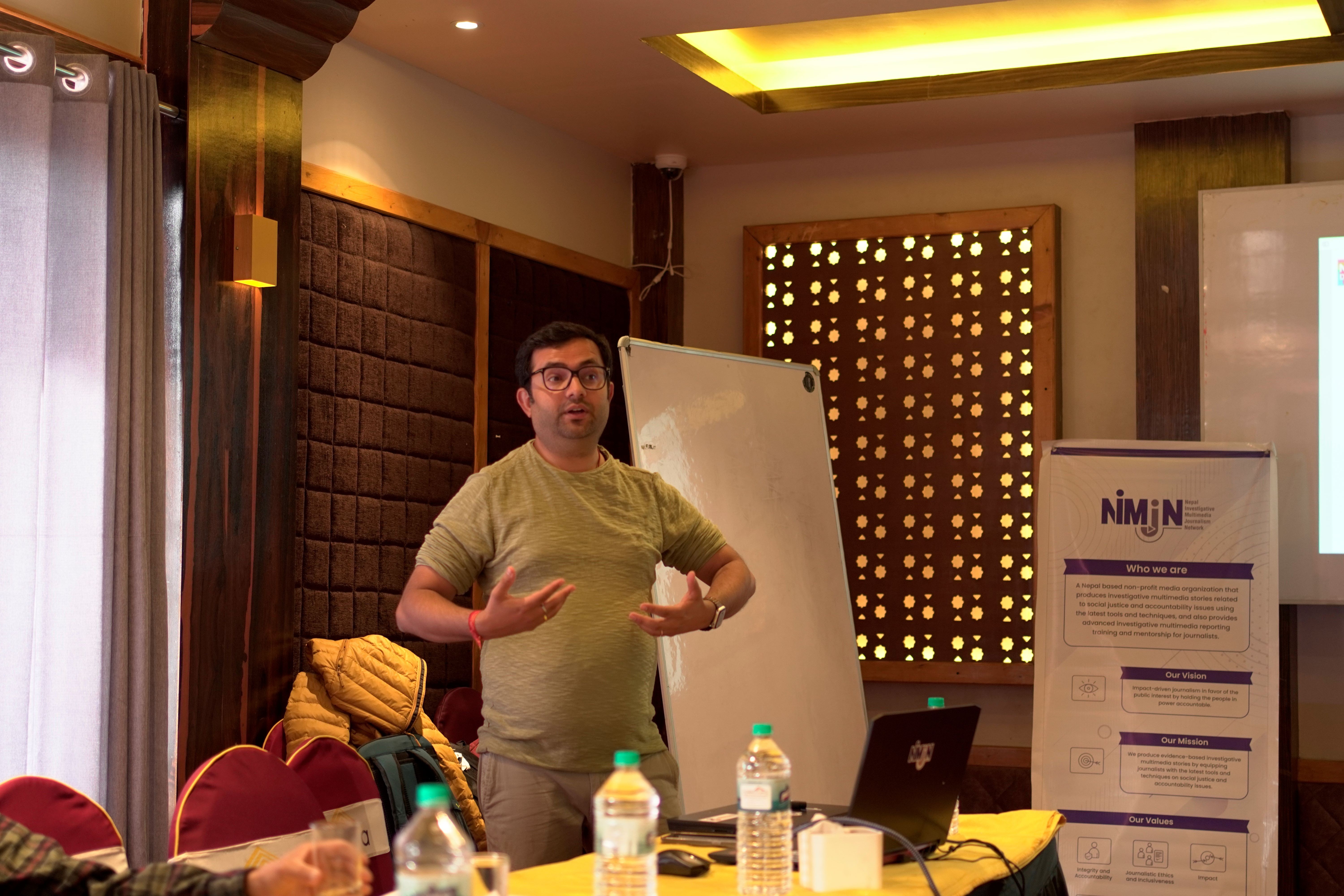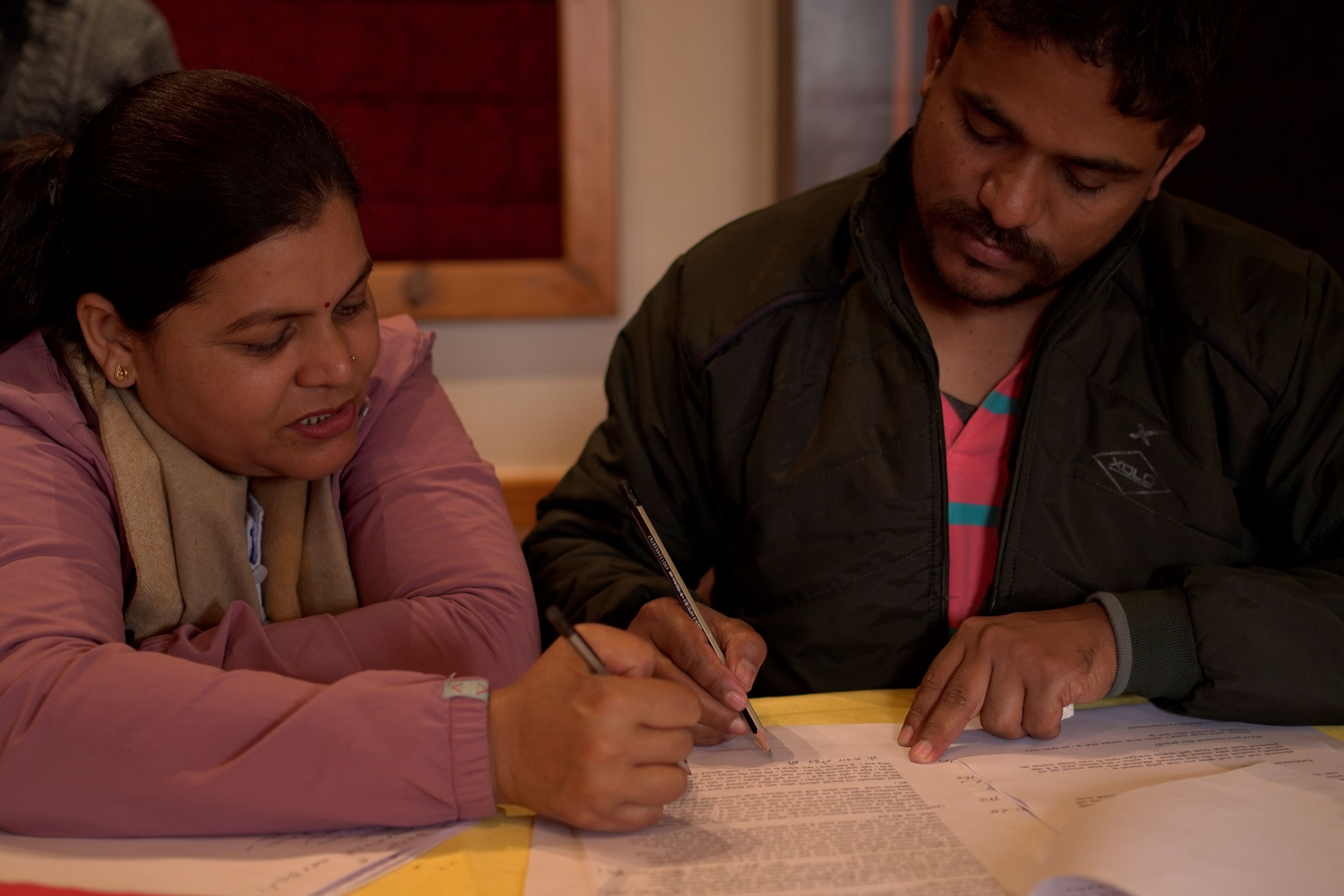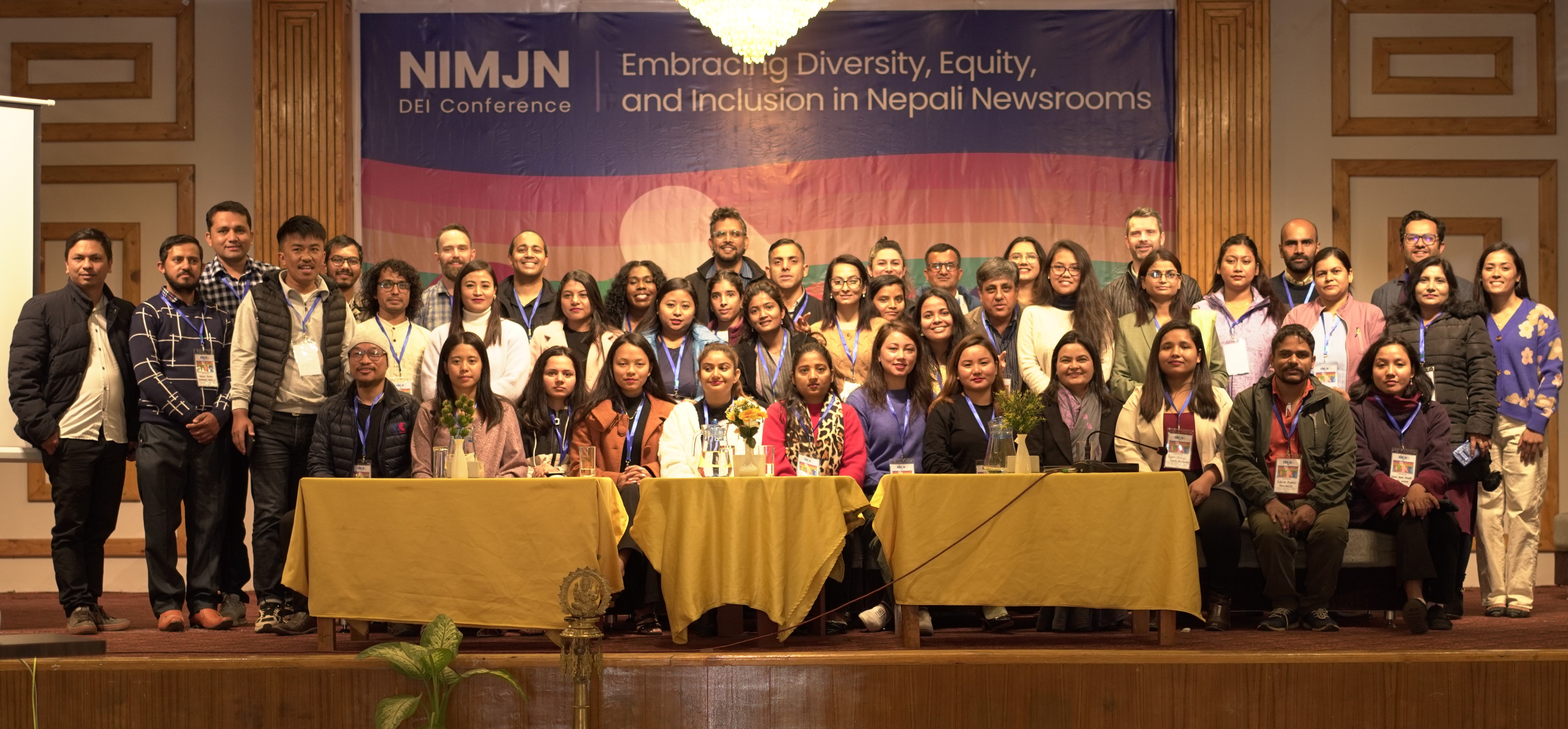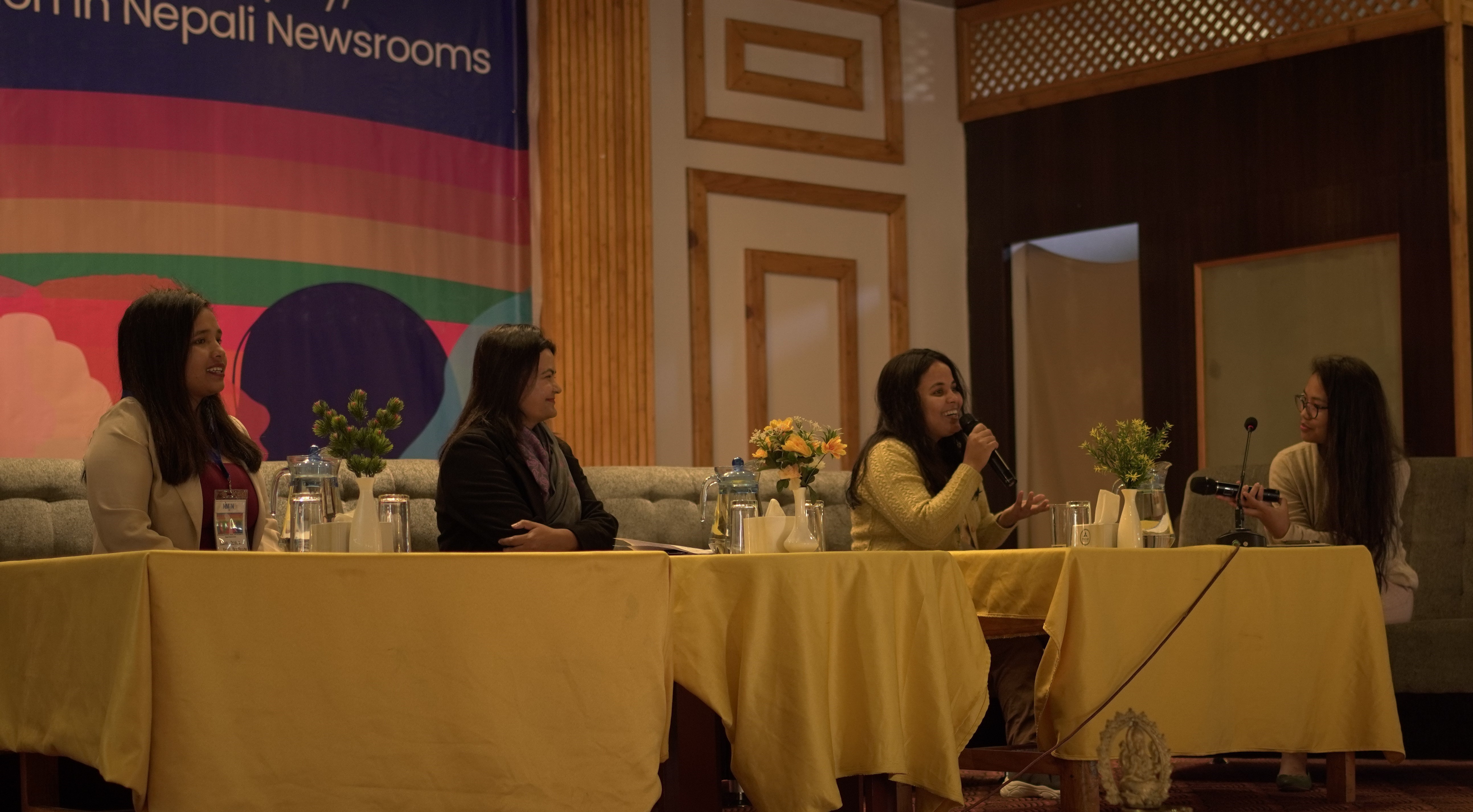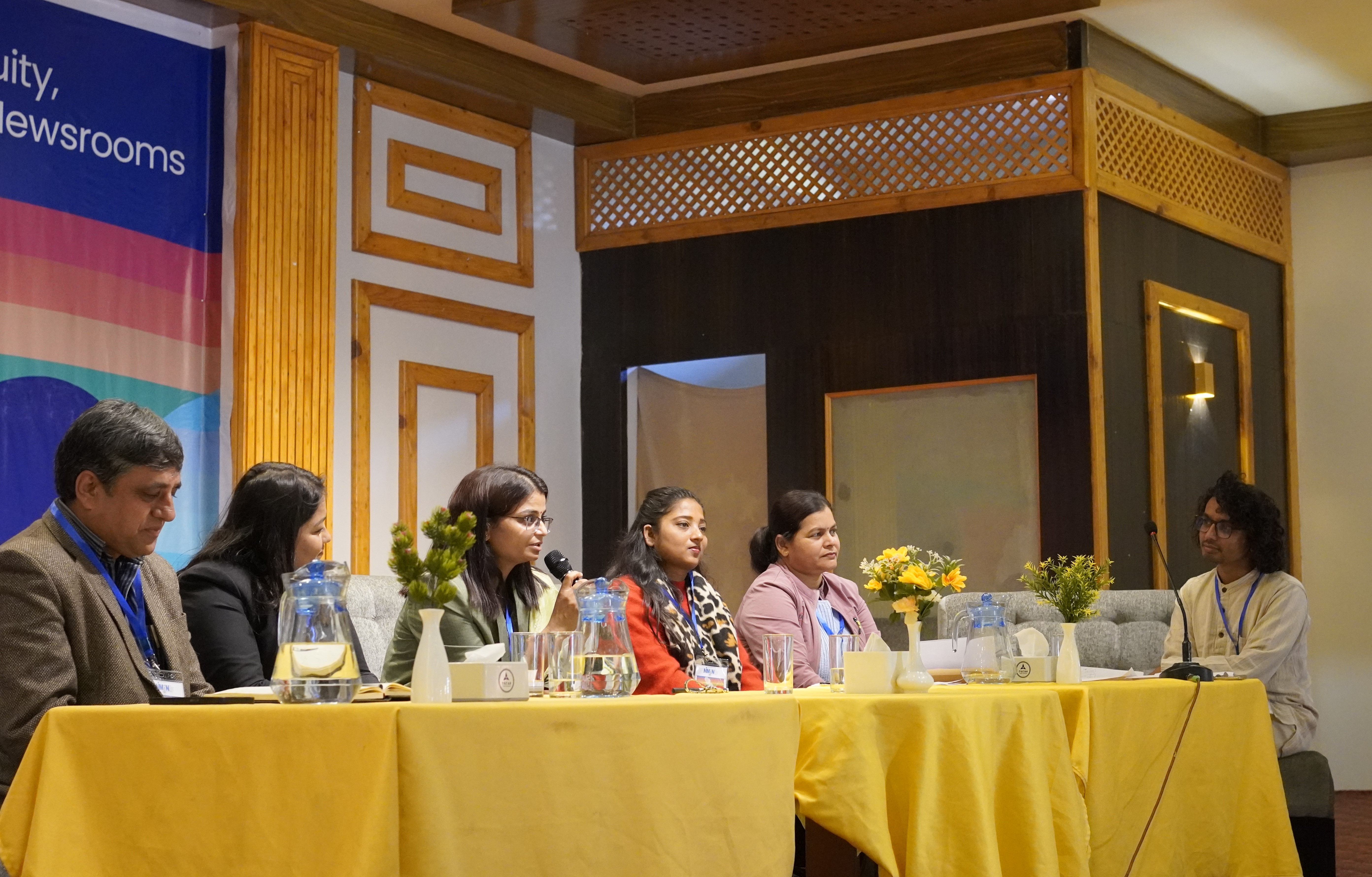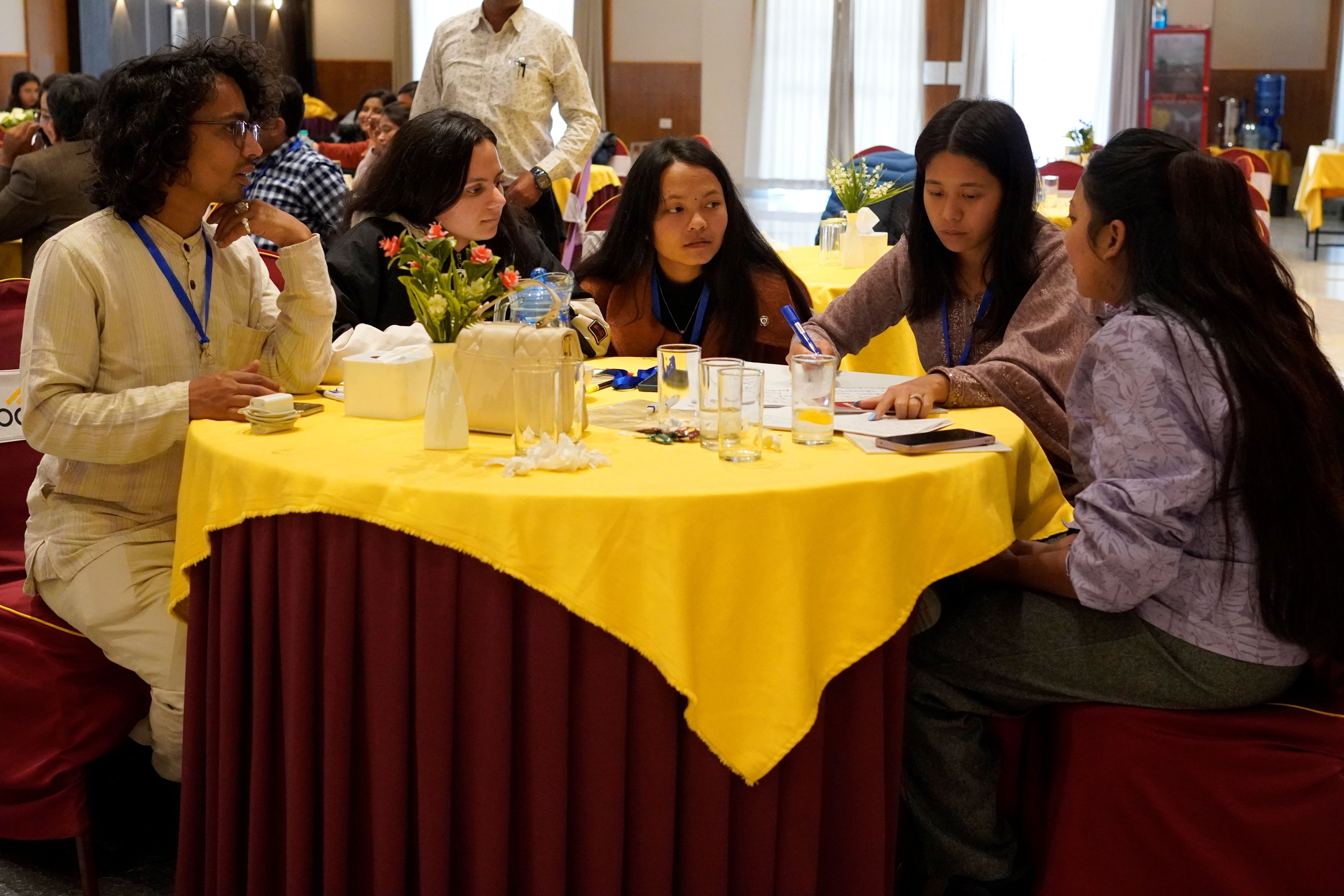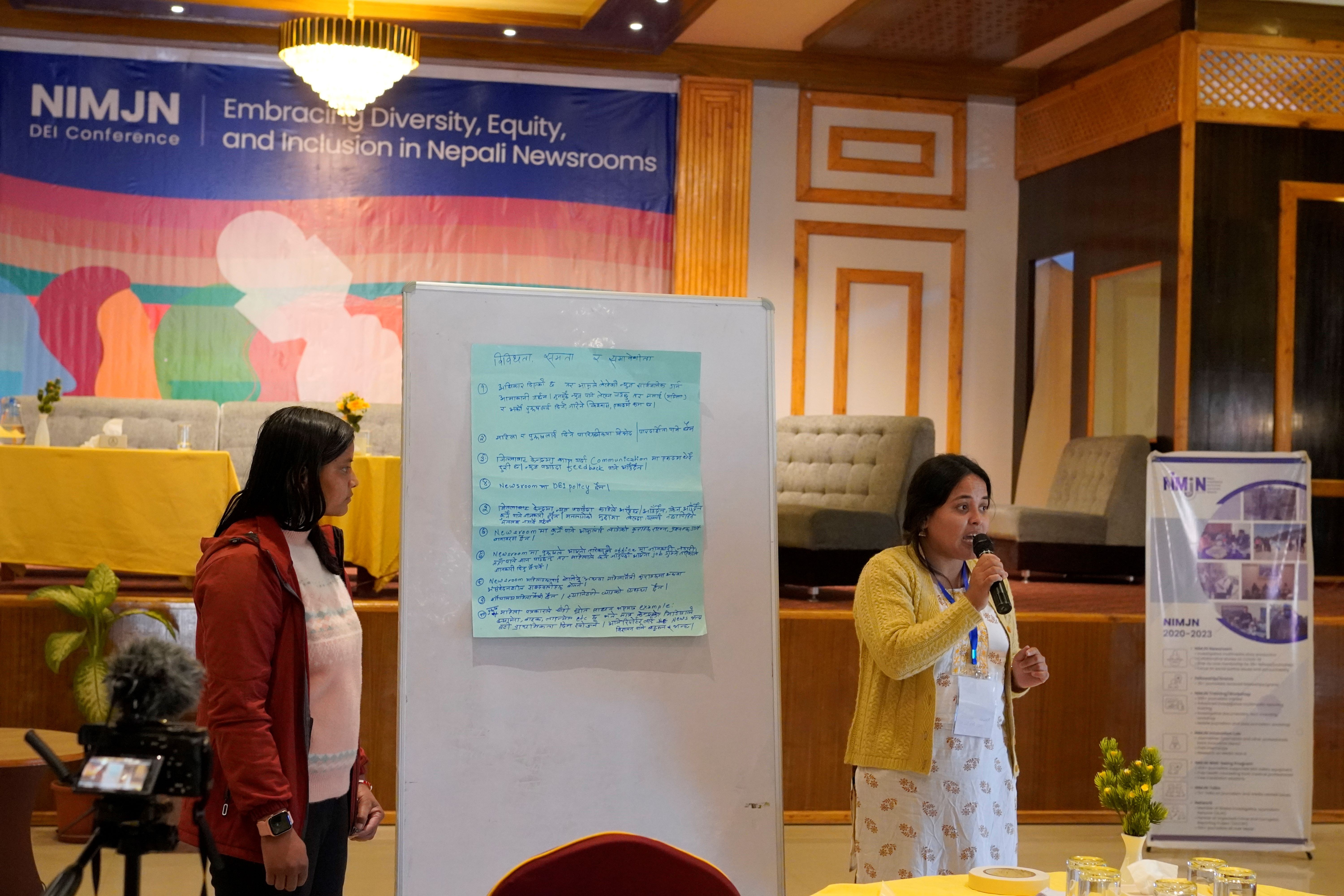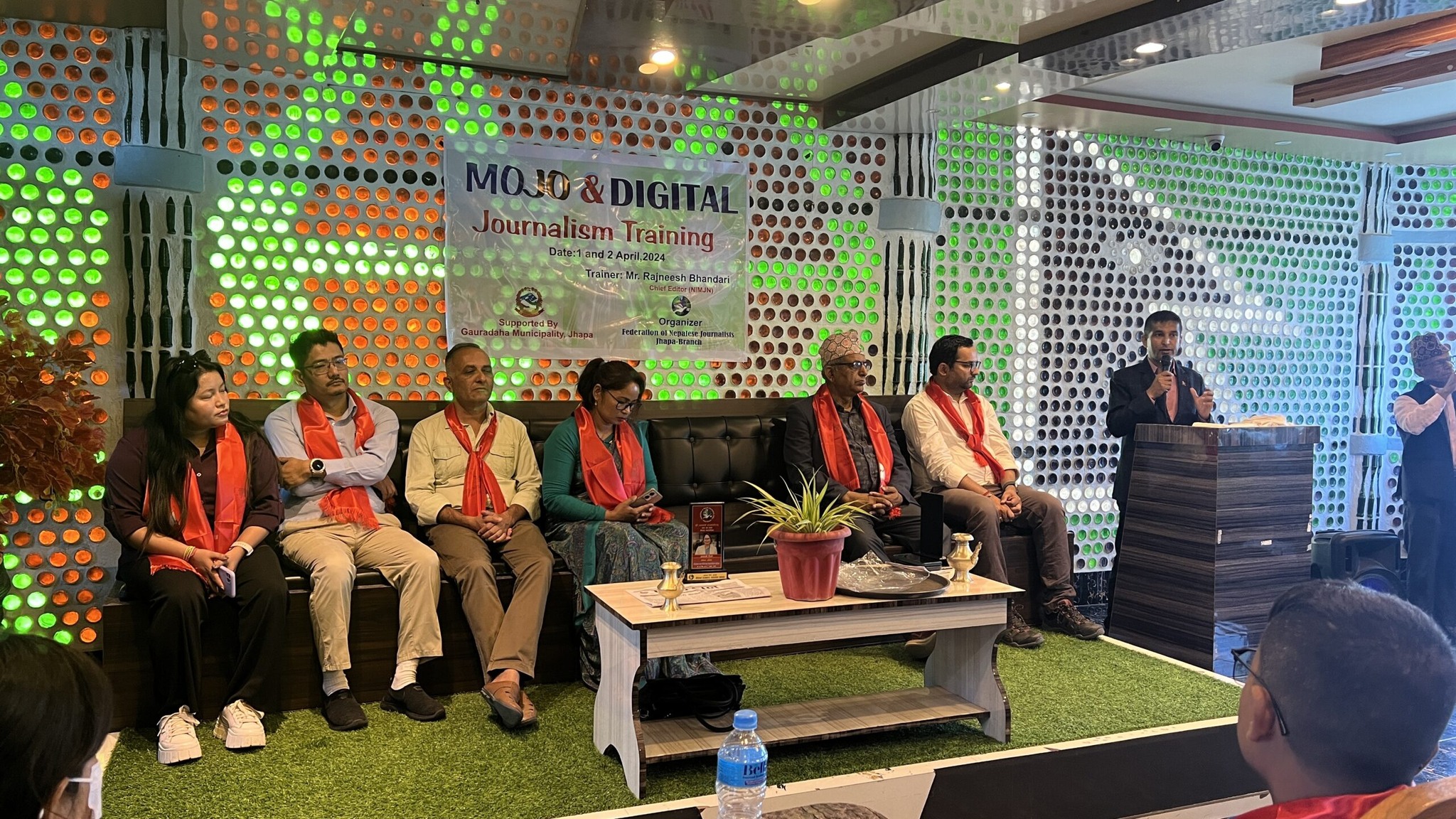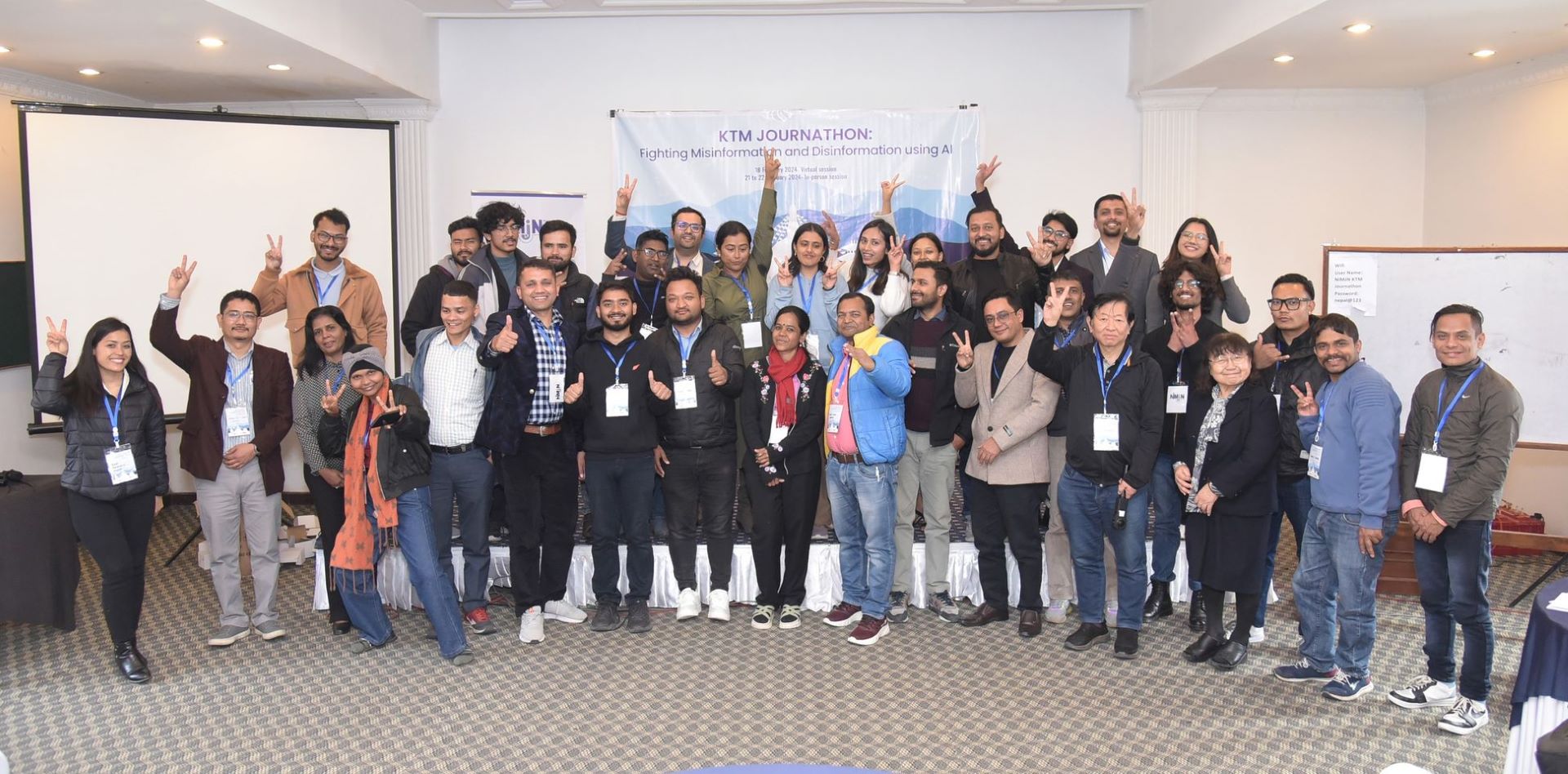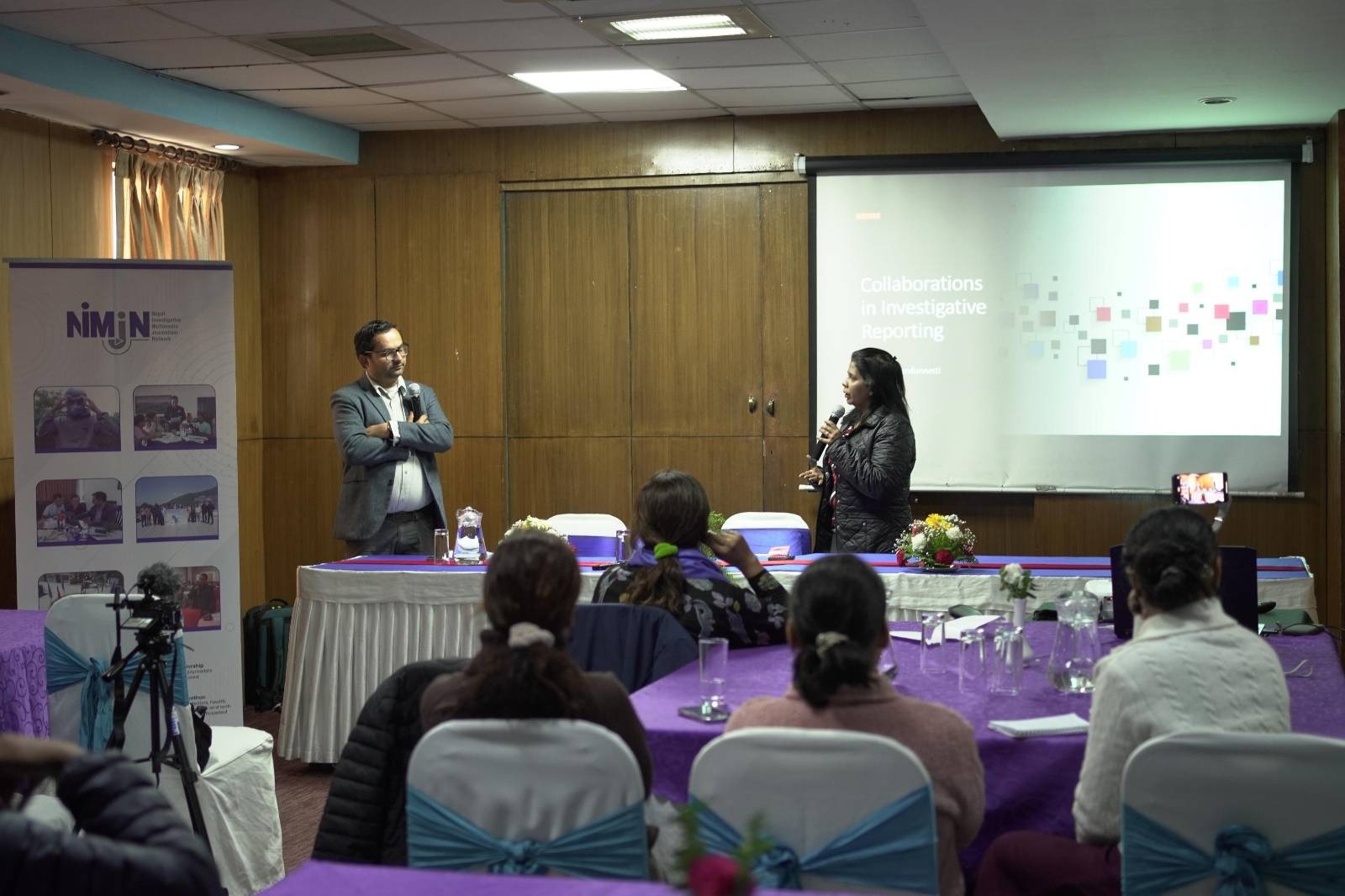NIMJN organized its first two-day conference on diversity, equity, and inclusion in Nepali media in Pokhara on Nov 27 and 28, 2023. The conference titled, “‘Embracing Diversity, Equity, and Inclusion in Nepali Newsrooms’ was organized in Hotel Pauwa, Pokhara. More than 40 participants including journalists from various provinces, fellows and partners joined the conference.
Caption: With the participants on the first day
On the first day of the conference, NIMJN trained its DEI fellows on DEI concepts and DEI pitching format and reviewed their stories. Rajneesh Bhandari, Chief Editor and CEO of NIMJN and a GEDI certified trainer from AAJA-Asia / WAN-IFRA WIN trained the journalists on GEDI Concepts and on pitching stories using the GEDI perspective.
Caption: Trainer Rajneesh Bhandari speaking on DEI concepts
Caption: Participants from the first day of the conference reviewing NIMJN DEI Fellows' stories
The second day of the conference included four sessions, including two-panel discussions, one roundtable discussion, and a session for the declaration of DEI commitments from the participants.
Caption: Partcipants from the NIMJN DEI Conference (2nd day)
First panel discussion:
Caption: Panelists and moderator for the first session
The panelists for the first session ‘Status of Inclusivity in Nepali Newsrooms’ included Basanti Bastola (General Secretary, Sancharika Samuha), Gajendra Budhathoki (Editor-in-Chief, Taksar Economic Magazine), Manika Bishwakarma (NIMJN DEI fellow and Correspondent at Setopati.com), and Elina DIyali (NIMJN DEI fellow, News Chief at Radio Kabeli 95.8 MHz, and Reporter at Nepal Television), with Sonam Lama (NIMJN Fellow and Staff writer at the Mongabay Indigenous News Desk) as the moderator.
The panel discussed how Nepali newsrooms have been understanding and incorporating the concepts of Diversity, Equity, and Inclusivity, and what the status of DEI has been in the newsrooms that they have been a part of. Panelists, which included three female and one male journalist, shared their personal and professional experiences of reporting from rural and remote regions that they represent, reporting as journalists belonging to various marginalized backgrounds based on their caste, gender, disabilities, etc., and reporting on DEI issues related to caste, LGBTQ+ community, etc.
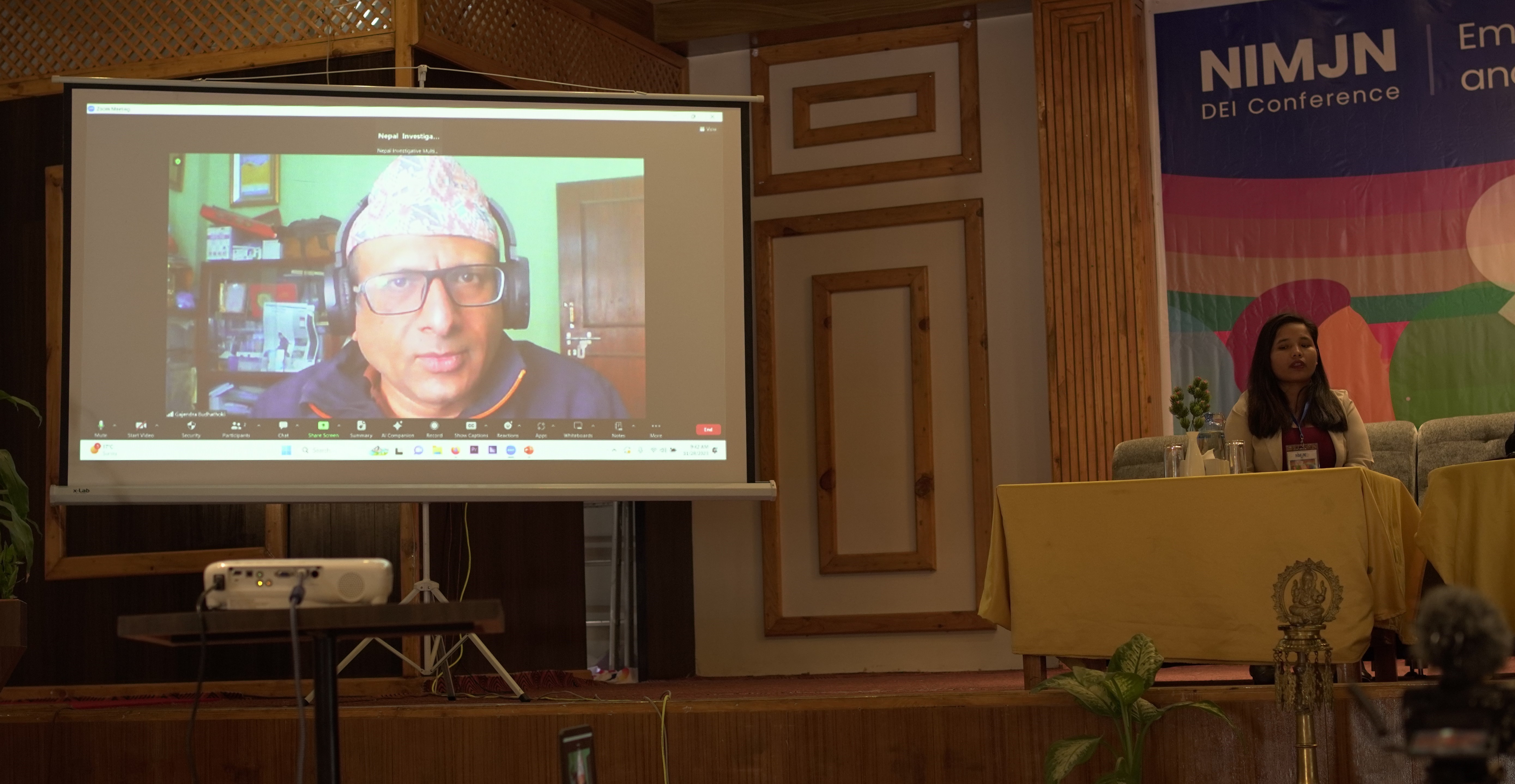
Caption: Panelist Gajendra Budhathoki joining virtually via Zoom
When asked about the status of the availability of news spaces for people with disabilities, one of the panelists, Gajendra Budhathoki, commented on how journalists reporting on social issues often prioritize their focus on the gender aspect first, then the indigenous or marginalized aspects, and finally on the disability aspect, without considering to think that there could be people with disabilities even among the gender and marginalized backgrounds. Another panelist, Manika Bishwakarma, spoke on the issues she faced while reporting on LGBTQI+ communities in her previous newsrooms. She cited a culture of general lack of sensitivity and lack of respect for the privacy of the community members, with headlines about them often sensationalized for sales and clicks.
Second panel discussion:
Caption: Panelists and moderator for the second session
The panelists for the second session ‘Implementing GEDI in Nepali context’ included Ranjita Adhikari (NIMJN fellow and Reporter at National News Agency), Anchala Chaudhary (Honourable member of the Provincial Policy and Planning Commission in Gandaki province), Bharat Koirala (Editor at Adarsha Samaj Daily), Madhuri Mahato (NIMJN DEI fellow and freelance reporter at Kantipur TV and BBC Nepali), and Kunjani Pariyar Pyasi (Human Rights Lawyer and Province Coordinator at Advocacy Forum Nepal), with Tanka Dhakal (NIMJN fellow and Independent Journalist) as the moderator. The panel discussed what DEI can mean in the context of Nepal, and how DEI can be incorporated at policy levels and in newsrooms here.
Kunjani Pariyar Pyasi, one of the panelists, commented on the status of the implementation of laws and policies in Nepal. She explained that people often tend to only abide by something if it's written in the law or policy, without realizing the importance of why they are following it (referring to the lack of implementation of DEI policies in workplaces).
Another one of the panelists, Madhuri Kumari Mahato, highlighted the importance of understanding and researching the area and communities that are being reported on especially if you don’t belong to that community. When asked about the status of sensitivity and confidentiality while reporting on such issues in the Madhesh province (which she represents), she mentioned that the GEDI (Gender, Equality, Diversity, and Inclusion) policy is yet to be implemented widely in the newsrooms there.
Another one of the panelists, Ranjita Adhikari, commented on how the lack of women news desk editors often leads to a lack of news on women-centric issues in the newsrooms in her area. Anchala Chaudhary, another one of the panelists and an Honorable Member of Gandaki Province’s Provincial Policy and Planning Commission highlighted the challenges of policy implementation in a country like Nepal. She mentioned how in the policy formation process, even if there are female representatives, one should take into consideration whether they also represent the rural parts of the region or just the city areas, as that makes a significant contribution to how the policies are written and who they are often written for.
Third session:
Caption: Conference participants engaged in group discussions
The third session of the conference included a roundtable discussion with all the participants based on the issues/discrimination that they have faced as journalists in the newsrooms that they have been a part of. The major issues pointed out by the participants are listed as follows:
- Lack of interest in DEI-related issues from the upper management level such as editors and leaders.
- Lack of gender-friendly office spaces (toilets, sanitary pads, etc.)
- Lack of DEI policy, guidelines, and its implementation in newsrooms
- Lack of fair distribution of stories (especially if it's a big issue) between male and female reporters, with female reporters often being assigned to less important stories.
- No provision for minimum wage in the industry; wage discrimination based on gender
- Often limited to only reporting on the gender and community they represent, rather than being allowed to report based on their interest and skill level
Fourth session:
Caption: Conference participants sharing their discussions and DEI commitments
The final session of the conference included the declaration of the commitments from the participants at personal and organizational levels. The major points of commitment have been summarized as follows:
- Will have a discussion on DEI policies at the workplace and will advocate for its implementation
- Will make guidelines for reporting on DEI communities and informing the reporters and editors about it
- Will prioritize DEI aspects while writing news
- Will consider DEI aspects before posting and publishing stories
- Will report more on marginalized and DEI issues
- Will work under the DEI guidelines while working on stories and news
////

